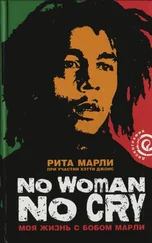“What a pity.”
Ben shifted his weight from one foot to the other. “You know these people. Can you think of anything—no matter how far-fetched—that would tie in Mitch, Anthony, and Donnie to the delivery of expensive furniture to coaches?”
“Drugs,” she replied. “These days it always seems to come down to that. We have a countereconomy in America, not one tax dollar produced from it. Billions.”
“I know,” Ben said with feeling.
Sister replied, “I can’t see that Clay or X would be involved in drugs. They don’t appear to use them. But,” she inhaled, “an insurance scam fits the bill, doesn’t it?”
“Yes.”
“Worried?”
Ben looked her right in the eyes. “Yes.”
“You don’t think it’s over?”
“No.”
She rubbed her forehead a moment. “They aren’t afraid to kill.”
“Selling OxyContin can yield hundreds of thousands of dollars. Prozac, Percodan, anything like that. Even Viagra.” He smiled slightly. “Off market, the drugs can make one very rich very fast. As for cocaine and other party drugs, they can make you rich fast, but they’re more dangerous because the other people dealing them are smart, tough, quick to kill.”
“Ben, have you ruled out the furniture and silver theft entirely?”
“No. No evidence so far for linking the fire to that, but, ” he said, with emphasis, “these people are highly intelligent, very well organized. This may be a warning to someone else in the ring or to competition. They’d be stupid to burn down a warehouse full of stolen goods, wouldn’t they?”
Sister agreed, then asked, “What can I do?”
“The Jefferson Hunt is one of the hubs of the county. Can you think of any one or any group who might be involved in a high-class theft organization or involved with drugs? For example, and I certainly don’t mean she would do this, just as an example, can you imagine Betty Franklin buying illegal diet drugs in this country on the black market?”
“No.” Then Sister chuckled. “Bobby would be thinner.”
Ben smiled. “Keep your eyes open. Keep thinking. We’re right next to it, Sister, but we can’t see it.”
When Ben walked away, she thought about the ghosts on Hangman’s Ridge. She shuddered. Those ghosts appeared when someone was going to die. She used to think it was a tall tale, but over the years she had learned to believe it.
She moved around the party. Marty Howard caught up with her for a moment. “Thank you for coming. If you ever have any time, Sister, we’d love for you to read. It’s not just books we need, but magazines and newspapers. It’s often hard for the blind to keep up with current things.”
“I never thought of that. I could read for an hour to two. Let’s see how I do.”
“I’ll call Monday and we can check calendars.”
As Marty moved away, Dalton Hill joined her. “The hunting has been very good. I’m glad I joined.”
“Me, too.” Sister noticed he wore an English school tie, quite expensive. “Beautiful tie.”
“Eton.” He blushed slightly. “Actually, I didn’t attend Eton. I went to St. Andrews College, Aurora, but I liked the thin Eton blue diagonal stripe.”
“I can see why. I heard you purchased the Cleveland bay.”
“Yes. I’m going to have my two hunters brought down from Hamilton, too.” He named the town where his horses were boarding. “I want to hunt as much as I can. One of the great things about teaching is I can set my schedule, so I have arranged all my classes to be in the late afternoon.”
“Perfect.” She paused, then addressed him. “Dr. Hill—”
“Do call me Dalton. I’m trying to downplay the doctor,” he interrupted, a conspiratorial note in his voice. “I really don’t want to hear about someone’s gallbladder.”
“I promise never to discuss mine.” She smiled. “In Canada certain drugs are available that aren’t available here, am I right?”
“Not hard drugs, of course, but yes. Canada’s laws are more patient-oriented. Forgive me a bit of national pride, but in the United States, Master, everything is driven by profit, by the huge pharmaceutical companies.”
“Call me Sister. But surely those mega companies—and not all of them are American, I mean the Germans and the Swiss have giant pharmaceutical companies, all those companies do business in Canada.”
“They do, but we have them more in check. The whole point is to heal the patient. If you can’t heal the patient, then you make him or her as comfortable as possible; it’s cruel to deny a suffering person relief.”
“What about performance drugs? Not drugs for illness, but drugs to enhance performance?”
“Sexual performance?” His eyebrows rose.
“Now there’s the elixir of life as well as profit,” she wryly exclaimed. “I wasn’t thinking of that, but let’s include it. I was thinking along the lines of drugs to retard aging, and yes, I would be the first in line.”
“No need.”
“Dalton, thank you. You’re fibbing, but it falls sweetly upon the ear.” She smiled broadly. “I was thinking of anti-aging drugs and athletic-performance drugs. Guess I was remembering that fabulous runner, Ben Johnson, the Canadian sprinter who set a record for the hundred-meter dash at the 1987 World Championships, and won the Gold Medal at the 1988 Olympics, and then forfeited it when he admitted to steroid use.”
“Athletes are far beyond that. The coaches, the team doctors—everyone is more sophisticated now, and the drugs are more sophisticated, too.”
“And some of these drugs are legal in your country?”
“Not steroids.”
“Do you condone their use?”
Hesitating, he replied, “There is no way any professional athlete can make a living, can hold down his or her job, without chemical help. I find nothing wrong in trying to advance human performance. The caveat is abuse. Aspirin is a drug. Caffeine is as well. Bodybuilders routinely drink a cup of coffee before working out. Actually, I find your country’s drug laws backward, repressive, opening a wide door for crime.”
She sighed deeply. “I’m afraid you are right.”
“The entrenched interests here, meaning those people making tax-free billions, have churches and politicians on their side. It’s hypocritical. It’s shocking. It’s big business.”
“Prohibition on a higher plane.” She sighed again.
“Exactly.” His lips compressed. Then he relaxed. “I apologize. Being an endocrinologist, I study human chemistry. We really can improve performance with drugs. We really can retard aging. And we really can begin to solve the riddles of some dreadful degenerative diseases with stem cell research.” He threw up his hands. “I cannot for the life of me understand why any human being would deny a cure for Parkinson’s to another, and yet that’s exactly what’s happening.”
“For many people, these are complex moral issues.”
“There’s nothing moral in watching a human being die by inches.”
“I agree, Dalton, I totally agree. But I am one lone woman in Virginia without one ounce of political clout.”
“You can vote, and you are a master. Masters are members of Parliament in training.” He was warm to her now. “Same skills.”
“Perhaps they are.”
“Why did you ask me about drugs?”
“Oh, Ben and I were talking about the university basketball team. One thing led to another. And then you said you wanted to shy away from being called a doctor. I thought I’d better ask while I could, especially about the aging stuff.” She laughed as she evaded telling the truth.
“I’ll tell you what. If you come to my office, I’ll pull blood, run an EKG, do a few other tests. I can tell you, with accuracy, the true age of your body. Not your years but the true age of your body. In fact, you’d be a fascinating subject. Without the tests, I’d hazard a guess that internally you are between forty-five and fifty. You have never abused alcohol, drugs, or smoked. Am I correct?”
Читать дальше












